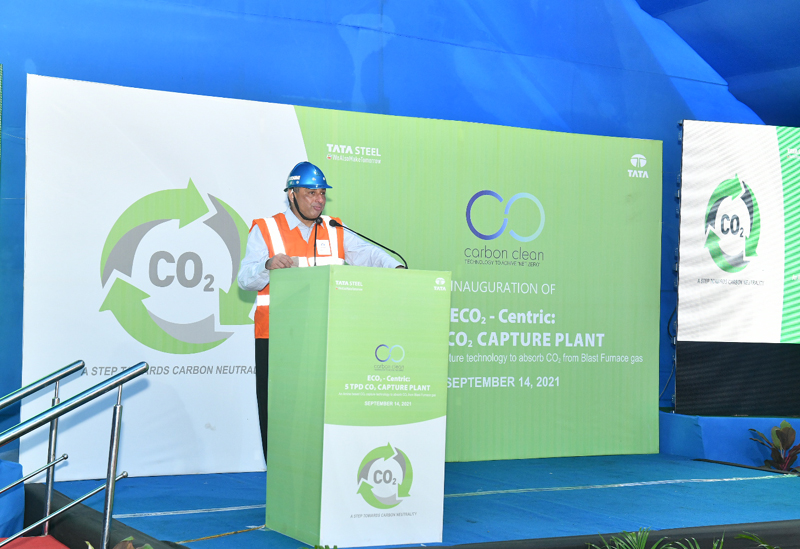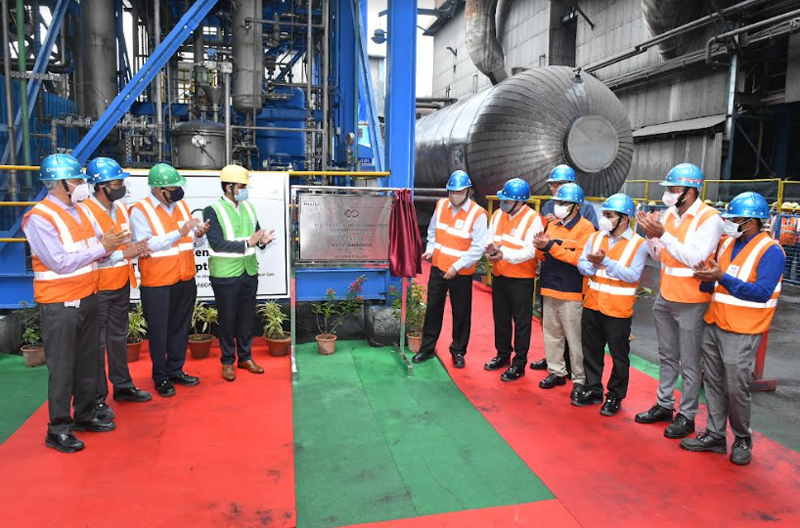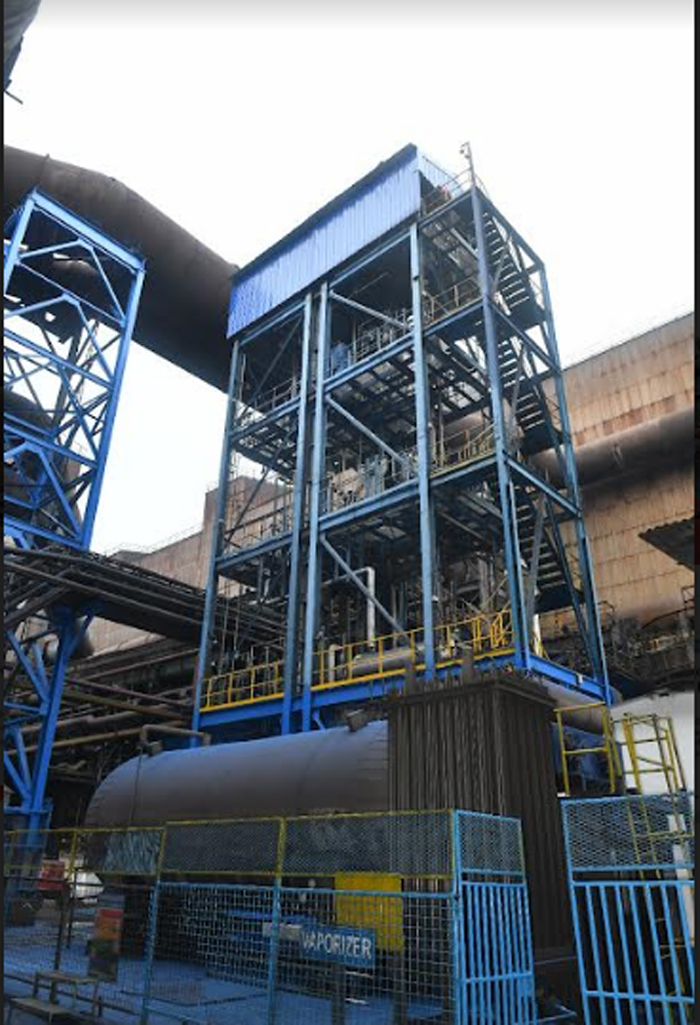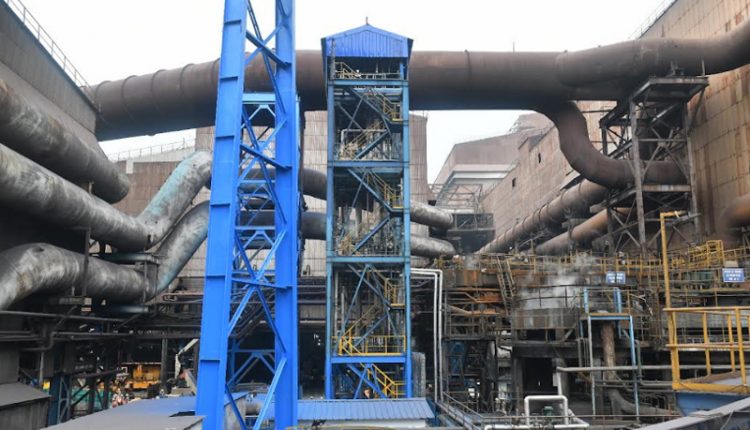The 5 tonnes per day (TPD) carbon capture plant along with its semi commercial use within the steel value chain, makes the Tata Steel Jamshedpur plant unique and first-of-its-kind in the world within the steel industry
Jamshedpur,(Kalinga Voice) : Tata Steel today commissioned a 5 tonnes per day (TPD) carbon capture plant at its Jamshedpur Works, making itthe country’s first steel company to adopt such a carbon capture technology thatextracts CO2 directly from the Blast Furnace gas.Tata Steel will reuse the captured CO2 on site to promote the circular carbon economy.
This Carbon Capture and Utilisation (CCU) facility uses amine-based technology and makes the captured carbon available for onsite reuse. The depleted CO2 gas is sent back to the gas network with increased calorific value. This project has been executed with the technological support from Carbon Clean, a global leader in low-cost CO2 capture technology.
The CCU plant was inaugurated by T. V. Narendran, CEO&MD, Tata Steel, in the presence of Company officials and other dignitaries.

T. V. Narendran, CEO&MD, Tata Steel, said: “In alignment with the Tata group’s pioneering values, we have taken this strategic step in our journey towards decarbonisation.We will continue our quest to remain an industry leader in sustainability by setting new benchmarks for a better tomorrow.For the sustainability of the steel industry globally and particularly in a growing country like India, it is essential that we find economical solutions for capturing and use of CO2 at scale. Leadership in mitigating emissions, accessing low-cost clean energy, and providing circular economy solutions will define our sector’s journey going forward.”
“The operational experience gathered from this 5 tonnes per day CO2 capture plant will give us the required data and confidence to establish larger carbon capture plants in future. As the next step,we aim to establish scaled up facilities of CO2 capture integrated with utilisation avenues,”he added.
Tata Steel continues to pursue its goal to be the industry leader in sustainability by reducing its CO2 emission intensity and specific freshwater consumption, developing sustainable supply chain, and contributing towards the future circular economy. The Company has undertaken a two-pronged approach of Carbon Direct Avoidance (CDA) and CO2 Capture and Use in pursuit of the decarbonisation goal.
Aniruddha Sharma, CEO, Carbon Clean, said:“We are delighted to be working with Tata Steel on this breakthrough project. We are currently capturing 5 tonnes of CO2 per day, but following our successful demonstration, we plan to rapidly accelerate the number of carbon capture projects. Capturing CO2 from blast furnace gas will not only decarbonise the steel plants but will also open avenues for hydrogen economy.”

Carbon Capture and Utilisation (CCU) is a key lever in the fight against climate change and global warming.The ‘Tata Steel- Carbon Clean’collaboration in the CCU field is a timely initiative and a step towards a sustainable tomorrow.
Over the past few years, Tata Steel has invested in multiple initiatives in harnessing clean and renewable energy, generation and use of Green Hydrogen and adopting waste heat recovery technologies. Tata Steel is a member of ResponsibleSteelTM, the industry’s first global multi-stakeholder standard and certification initiative, to further its sustainability goals.
Tata Steel has also made progress in its steel recycling business initiative, which is a definitive step towards sustainable steel production. The Company has set-upits first Steel Recycling plant at Rohtak in Haryana which will enable lower carbon emissions, resource consumption and energy utilisation.

Both, Tata Steel India and Tata Steel Europe have been recognised by the World Steel Association (worldsteel) as Steel Sustainability Champions for four years in a row. The recognition is a testament to Tata Steel’s commitment to sustainable business practices.
In September 2020, Tata Steel had joined hands with the Council of Scientific & Industrial Research (CSIR) to work in the field of Carbon Capture, Utilisation& Storage (CCUS), to build a strong ecosystem in the country for meeting the decarbonisation commitments under the Paris Agreement.

